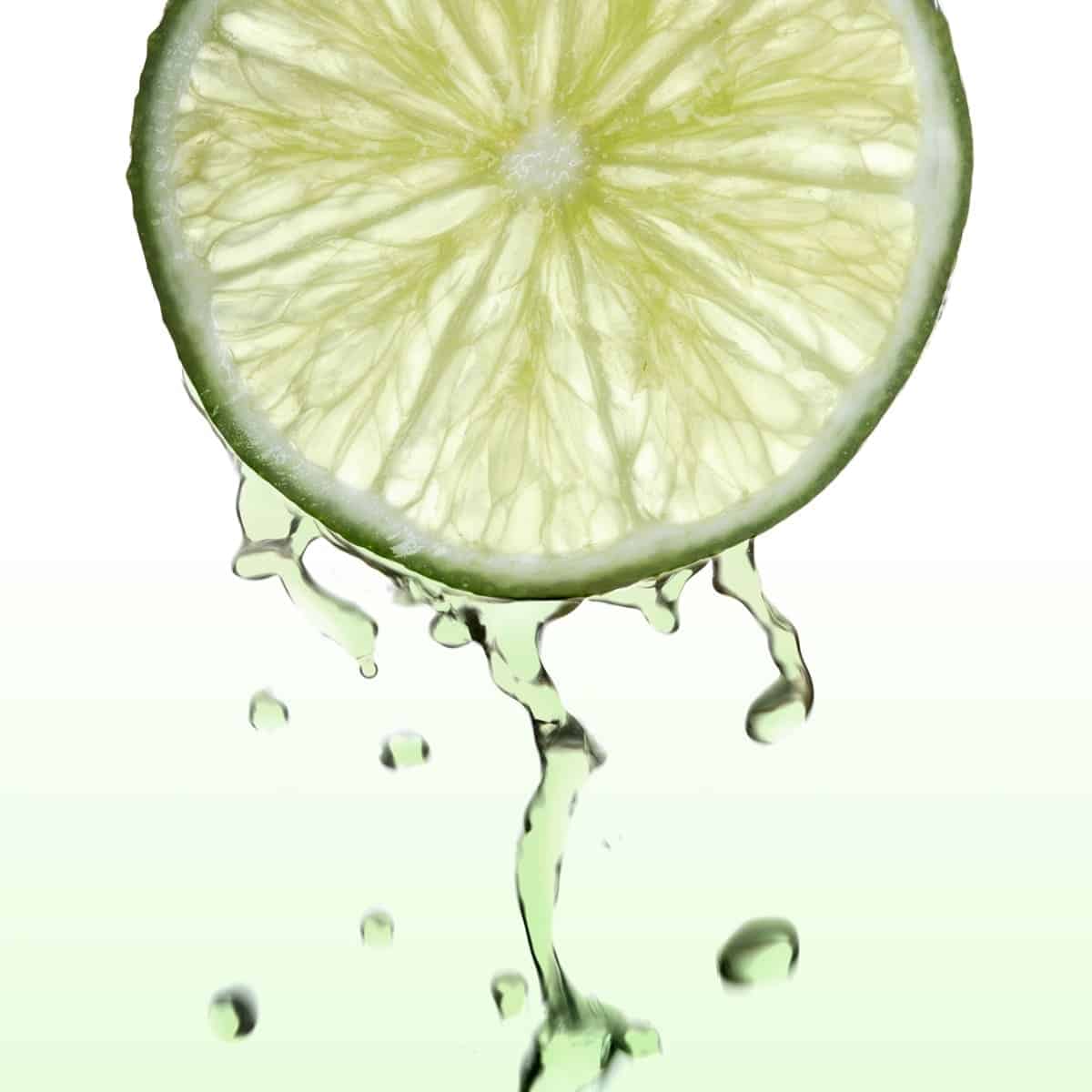
Lime juice is among the most versatile everyday kitchen ingredients. It adds freshness and vivacity to any dish.
Most consider it essential. Some would say there's no substitute.
I'd disagree.
That's why I've written this guide to lime juice substitutes and replacements for all applications - from cocktails to curries, from salsa to salad dressings.
Seeking a more traditional citrus flavor for your desserts and sweet treats? Lemon juice is the most popular fresh lime juice substitute. Its fresh, tart, citrusy flavor profile can achieve a similar effect.
But you know that. You're here to discover other alternatives.
Let's consider our options.
Jump to:
What is Lime Juice Used For?
This citrus juice is noted for its versatility. Its sourness is mild compared to bitter lemons. It adds sweetness with a light touch - it's often considered to have the most refreshing taste of all citrus fruits.
It's not just about that uniquely refreshing, tangy flavor, though. The citric acid in lime juice also has chemical properties that are especially advantageous in baking, breathing new life into established recipes.
It's why I love it so much as a kitchen ingredient. This is also why the best lime juice substitutes depend on your purpose.
White wine vinegar might work in a salad dressing, for example. But it won't do your cookies any favors.
Likewise, tamarind paste can really liven up a stew due to its unique, citrusy sweet/sour flavor. But if you try adding it to a mojito, you'll be put on a Wanted list in at least a dozen countries.
That's why I've put together the list below - you'll be able to find the perfect lime juice substitute for every occasion!
Culinary Uses of Lime Juice
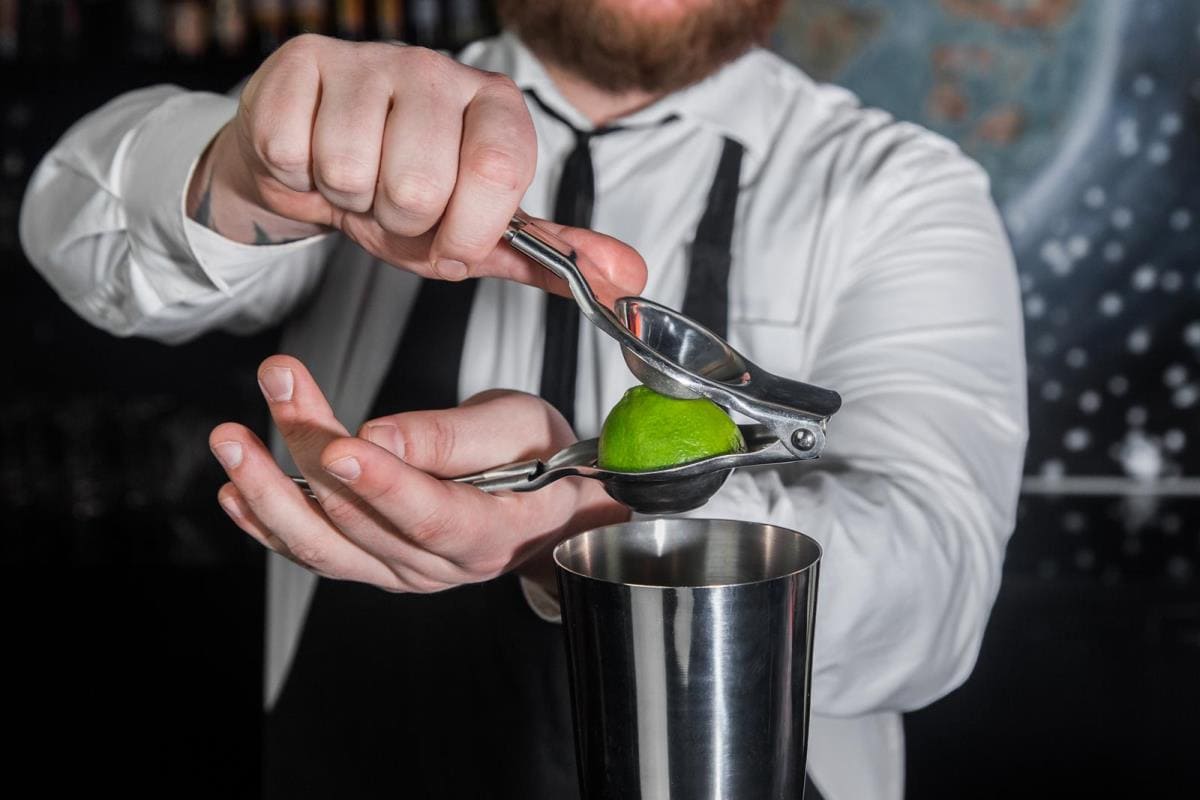
Okay, now that we've got a grip on what lime juice is, let’s dive into its culinary uses. In my kitchen, lime juice is a star player in many dishes.
Let's start with the basics: marinades and dressings. Lime juice is fantastic for these because its acidity can tenderize meat and brighten up a salad. I’ve found it's just what I need to make my grilled chicken or shrimp sing with flavor. In a vinaigrette, it adds that zesty touch that pairs so well with fresh, green salads.
Another wonderful way to use lime juice is in soups. Ever tried adding a squirt of lime to a spicy Thai soup or a rich Mexican pozole? It's a game-changer. It cuts through the heaviness and adds a refreshing lightness that makes the soup taste just right.
And let's not forget about desserts. Lime juice has a special place in the world of sweets. Key lime pie, lime sorbet, lime-infused cupcakes—the acidity of lime contrasts beautifully with sweetness and creates a balance that your palate will thank you for.
Cocktails are another domain where lime juice shines. Ever had a margarita or a mojito? Then you’ve tasted the magic lime juice can bring to a drink. It adds tartness, enhances the other flavors in the mix, and rounds off the sweetness of the drink.
In short, lime juice is one of my favorite kitchen allies. Whether it's in savory dishes, desserts, or drinks, it always adds that little something extra that takes the flavor to a whole new level.
Next time you're cooking, think about where a splash of lime might add some pizzazz. You might be surprised at the results.
And if you ever find yourself out of lime juice, don't worry—there are some great substitutes out there. We’ll be tackling them next.
My 10 Best Lime Juice Substitutes
When life gives you no limes, try these substitutes instead:
1. Lemon Juice
When you're looking for the closest replacement for that sweet-sour flavor, lemon juice is the #1 choice.
It has that unique, citrusy taste. It's widely available. And it works in virtually all applications, from garnishing savory stews to making refreshing cocktails.
In my opinion, it's the best substitute for baked goods and the #1 choice among other citrus juices. Citrus-based desserts like lemon cheesecake enjoy the same unique freshness as when you bake with limes - it's always a safe bet.
If it's a choice between fresh lemon and bottled lime juice, I'll take the lemons every time.
Best for: Lemon juice is an all-rounder. It's the best replacement for margaritas, hands down. It's also perfect for salsa and salad dressing and excellent in baked goods like cheesecakes.
2. Grapefruit Juice
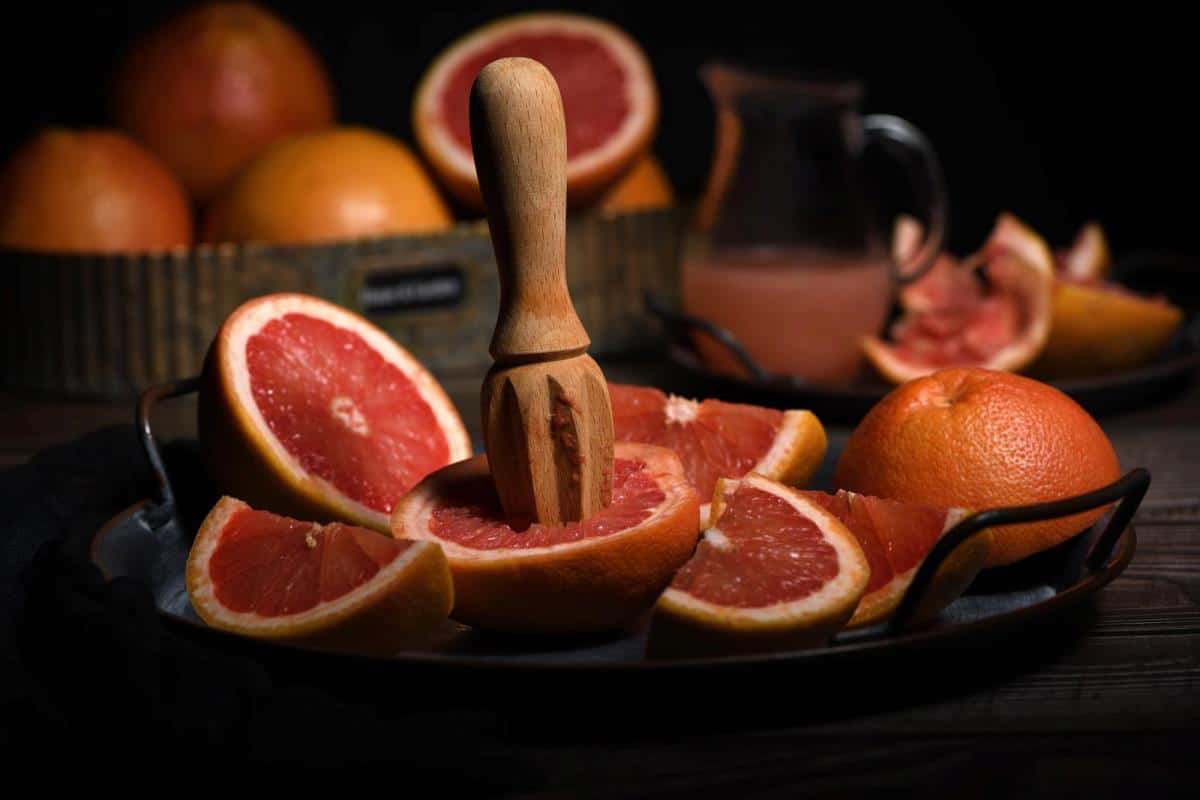
Here's another citrus fruit with a distinctive flavor profile. Grapefruit juice makes a great alternative because it has an undercurrent of sweetness, especially red grapefruit. Some people find this lacking in lemon juice.
It's less popular as a garnish alternative but works extremely well if you want to add a tang to cocktails. It's also an undervalued baking ingredient.
Best for: Grapefruit juice is less tart than lime - it's great for cocktails and baking. It's also superb for seafood dishes and salad dressings.
3. Orange Juice
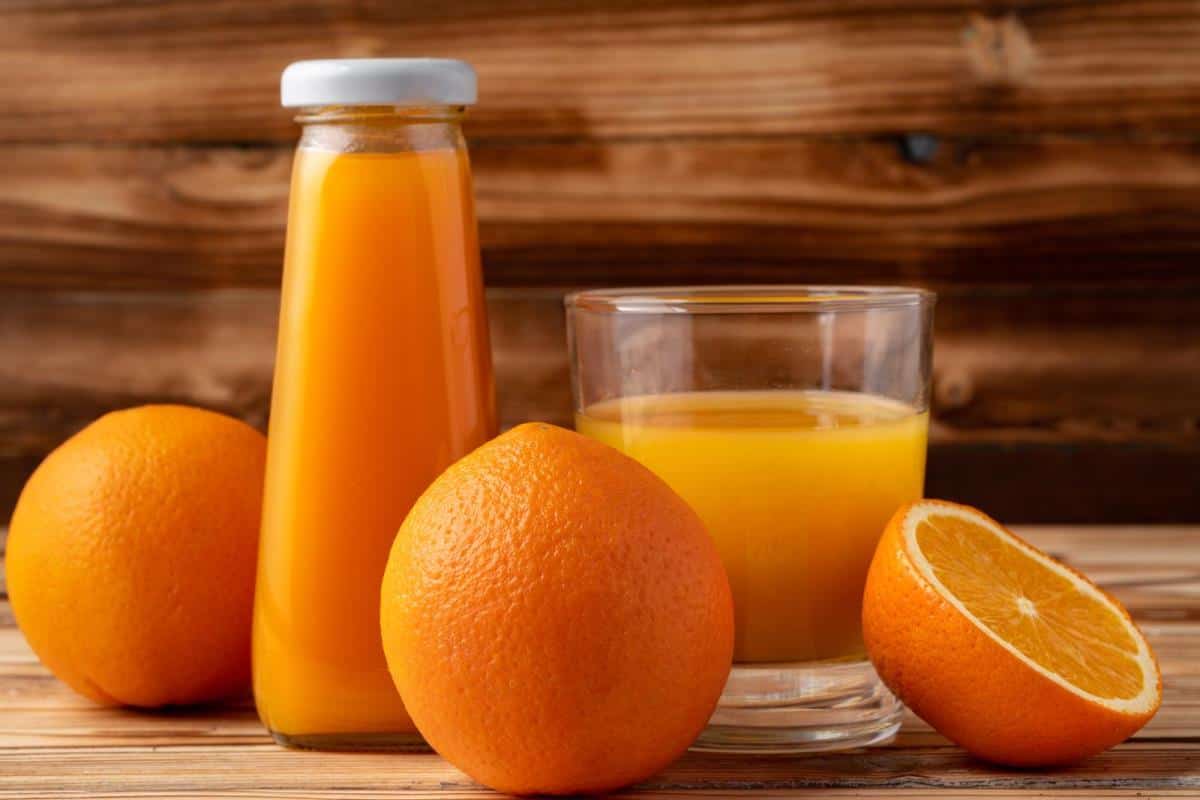
Good old-fashioned orange juice is a viable replacement in a pinch. I'd always recommend using unsweetened orange juice where possible - oranges are naturally sweeter than limes, so there's no need for any added sugar.
Fresh orange juice is a wonderful cocktail ingredient. It also has numerous applications in marinades and sweet, tangy dressings, especially come grilling season!
Best for: Orange juice is a sweet alternative for marinades and dressings. It also works so well with grilled duck, chicken, and pork.
4. Bitter Orange Juice

You're less likely to have bitter orange lying around than standard OJ, but if you do, I'd consider it a superior substitute.
The added bitterness helps add that tangy taste that we expect from limes. If a savory recipe calls for a touch of lime juice, you could consider substituting it with a dash of bitter orange juice.
Best for: Bitter orange juice adds a citrusy kick to any dish, which makes it an excellent choice for marinades, braised dishes, and Mexican dishes. It also adds an extra kick to marmalades and chutneys.
5. White Wine Vinegar
Run out of lime juice but still need to throw together a beautiful salad dressing? Consider white wine vinegar.
I'd always recommend this over red wine vinegar if you're looking for citrus alternatives. Two main reasons:
- It won't heavily discolor the dressing
- The flavor is slightly sweet and milder than red wine vinegar
I'd steer clear of vinegar replacements for baking sweets. Acetic acid (which vinegars contain) reacts differently with other ingredients than citric acid, and may add a slightly pungent flavor if it's not used with extreme caution.
Best for: White wine vinegar is ideal for livening up salad dressings & zingy salsas. It's a wonderful addition to slaws and marinades.
6. White Vinegar

White vinegar is potent but is often preferred as an acidic alternative because it doesn't carry any flavor of its own.
White vinegar provides tanginess without overpowering other flavors, making it perfect for soups and stews where subtlety is key.
Best for: White vinegar adds background acidity in savory dishes such as curry without distorting the flavor profile. Also consider coleslaws and pickles.
7. Apple Cider Vinegar

Alternatively, apple cider vinegar works well when substituting lime juice at a ratio of one part ACV to two parts water.
This vinegar has a powerful taste, so I tend to use it in dishes where it cooks out. It's a fantastic marinade ingredient, as it has plenty of depth along with a sour taste that enriches a dish.
Start with small amounts and adjust according to taste to maintain the intended flavor balance of your dish.
Best for: Apple cider vinegar helps you create deep, rich marinades and meaty sauces. Relishes and slaws are also enhanced with this vinegar.
8. Lime Zest (and Other Citrus Zest)

Looking for a way to add a citrusy kick to your desserts without using lime juice? Try using zest from a lime, lemon, or orange for a refreshing flavor that pairs well with sweets like key lime pie or key lime bars, cookies, and cakes.
Grate the outer skin of fresh limes or other citrus fruits using a fine grater or zester, being careful to avoid the bitter white pith.
There's also lime extract to consider. This is a more concentrated option, so use it sparingly in your recipes.
These alternatives are a great way to add a tangy twist to your desserts when you don't have any freshly squeezed lime juice to hand.
Best for: Lime zest is an amazing choice for garnishes and finishing savory dishes, especially in Mexican and South Asian cuisines.
Related: Best Lemon Zest Alternatives
9. Lemon/Lime Soda
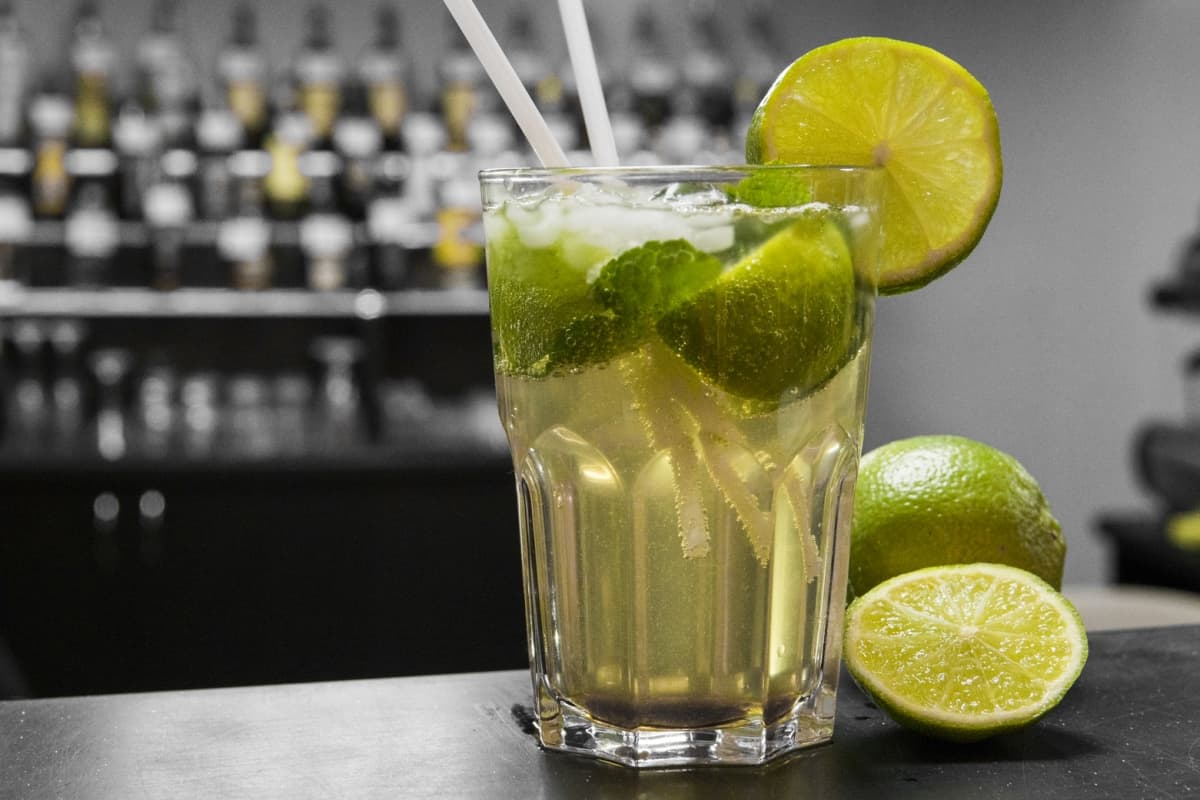
Simple, reliable, and always available.
What's not to love?
Lemon/lime soda is a cupboard essential. Its mild flavor means that you're unlucky to cause chaos by just adding a dash to a recipe that calls for fresh lime juice.
And if you're hosting a cocktail party, it's a must-have for the inevitable moment when the fresh limes run out. It's useful to stand in for many cocktail essentials - for instance, if you're looking for club soda substitutes.
Remember that its tangy flavor is often offset with sugar, so use it gently to avoid oversweetening dishes.
Best for: Lemon/lime soda is fizzy substitute suitable for refreshing cocktails and summer beverages.
10. Tamarind Paste
Here's an option with a unique twist: tamarind paste.
This delivers an exotic taste with some acidity. It's particularly well-suited for use in South Asian cuisines, where its distinct flavor complements the spices commonly used in these dishes.
You can buy this paste from a store, but you can also make your own! Check out the tamarind paste recipe below.
Best for: Tamarind paste adds depth and an extra dimension to curries and marinades.
Tips for Substituting Lime Juice in Recipes
My goal when suggesting substitutions for popular ingredients is to help home chefs get the flavor they're looking for - while avoiding mistakes I've made in the past!
Simple changes don't always work out the way you expect. Many dishes are finely balanced, and achieving a similar taste can be tricky.
I've made these mistakes so you don't have to. Here's a quick 101 on successfully substituting lime juice in your recipes.
- Citrus juices are best for baking. Baking recipes are a more exact science than stews and soups. The way citric acid interacts with other ingredients is a critical part of this. It's best to stick with lemon, orange, or grapefruit juice.
- Vinegars are great for savory recipes and salad dressings. Lighter vinegars add both freshness and complexity to your favorite recipes, and are excellent substitutes if you don't have fresh lime juice on hand.
- Unsure about a substitution? Start small. If you're unsure how the replacement will affect the recipe's flavor, add a tiny bit and taste it to test. If it seems okay, you can keep adding more!
Lime Juice Substitute FAQs
The best substitutes are typically other citrus fruit juices - lemon juice, orange juice, grapefruit juice, or key lime juice.
These alternatives provide similar acidity and citrus flavors to recipes. Choose the best option based on the desired flavor profile and availability of ingredients.
Yes, you can generally substitute lime juice for lemon juice in most recipes, as they both offer acidity and citrus flavors.
However, keep in mind that limes have a slightly stronger taste than lemons; adjust the quantity accordingly to achieve your desired flavor balance.
Apple cider vinegar can be used as a replacement for lime juice when you need acidity but not necessarily the citrus flavor.
To maintain some fruitiness in your dish, mix equal parts apple cider vinegar with water or another fruit-based liquid like pineapple or orange juice.
For those looking for a non-citrus alternative, tamarind paste or sherry vinegar are excellent options.
Tamarind paste offers tangy, sweet-sour notes while sherry vinegar provides a mild fruity flavor and balanced acidity. Use these substitutes in small quantities and adjust according to taste preferences.
Fresh Taste, Fresher Ideas
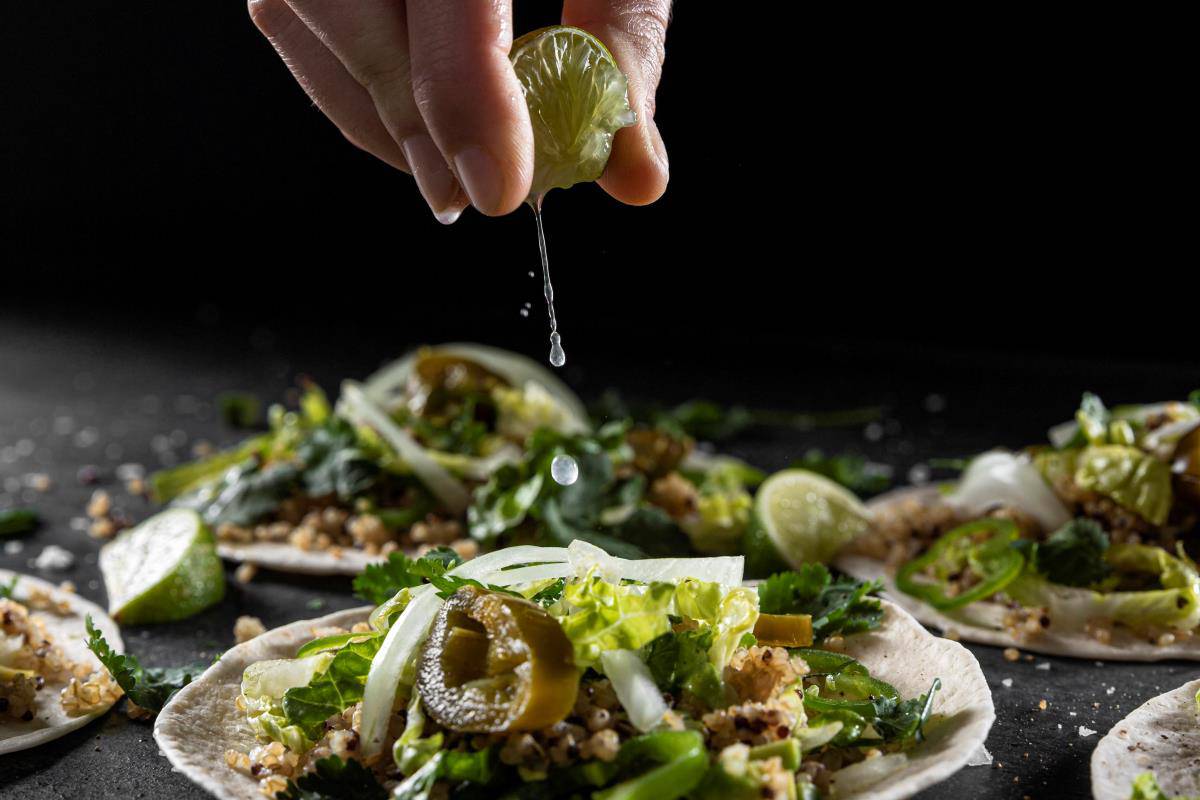
Whether you're whipping up a key lime pie for a gathering or grabbing a garnish for a Mexican dish such as guacamole beef burritos, knowing your way around the best replacements for lime juice gives you an instant advantage.
We'd love to cook in a perfect world where our cupboards are never empty. But sometimes things run out - and we need to make smart choices to keep our dishes tasting their best.
The substitutes outline above give you the tools to do just that! Make the right call every time when you need a substitute for lime juice by keeping this guide ready!
Recipe

Fresh Tamarind Paste
Equipment
- 1 Glass Bowl Use a large bowl to prevent spillages.
- 1 Kettle
- 1 Sieve
- 1 Saucepan
- 1 Wooden spoon
Ingredients
- 250 g Tamarind pulp
- 3 cups Fresh water
Instructions
- Tear the block of tamarind pulp into medium-sized chunks and put it in a glass bowl.
- Boil the kettle and pour roughly 3 cups of water over the pulp until it is fully submerged. Add more water if necessary.
- Leave the pulp to soften for around 1 hour.
- Use your hand to massage the softened pulp in the water. Continue until it forms a thick paste.
- Strain the paste through a sieve into a saucepan.
- Scoop the pulp from the sieve and add more warm (not boiling) water to what remains.
- Squeeze and strain it a few times until all the paste has been extracted from the pulp. Discard the remaining pulp.
- The paste in the saucepan should be smooth. Heat it for 4-5 minutes, stirring with the wooden spoon to ensure it doesn't burn.
- Allow to cool for at least 2 hours. Then refrigerate in a clean glass jar and store for up to a month.
You can find the video in the post above. If you don't see a video, please check your browser settings.


Leave a Reply